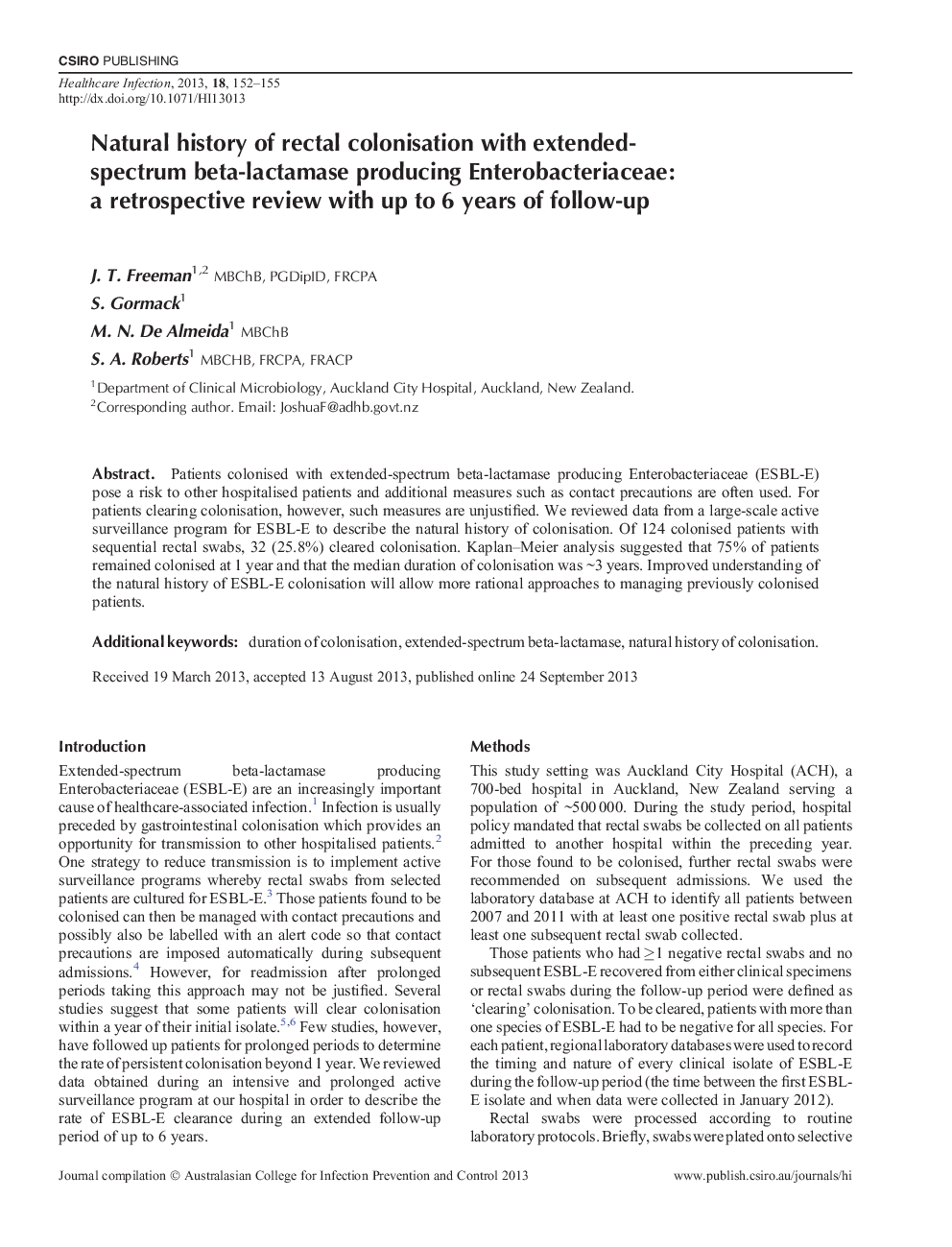| Article ID | Journal | Published Year | Pages | File Type |
|---|---|---|---|---|
| 2685385 | Healthcare infection | 2013 | 4 Pages |
Patients colonised with extended-spectrum beta-lactamase producing Enterobacteriaceae (ESBL-E) pose a risk to other hospitalised patients and additional measures such as contact precautions are often used. For patients clearing colonisation, however, such measures are unjustified. We reviewed data from a large-scale active surveillance program for ESBL-E to describe the natural history of colonisation. Of 124 colonised patients with sequential rectal swabs, 32 (25.8%) cleared colonisation. Kaplan–Meier analysis suggested that 75% of patients remained colonised at 1 year and that the median duration of colonisation was ~3 years. Improved understanding of the natural history of ESBL-E colonisation will allow more rational approaches to managing previously colonised patients. Additional keywords: duration of colonisation, extended-spectrumbeta-lactamase, natural history of colonisation.
